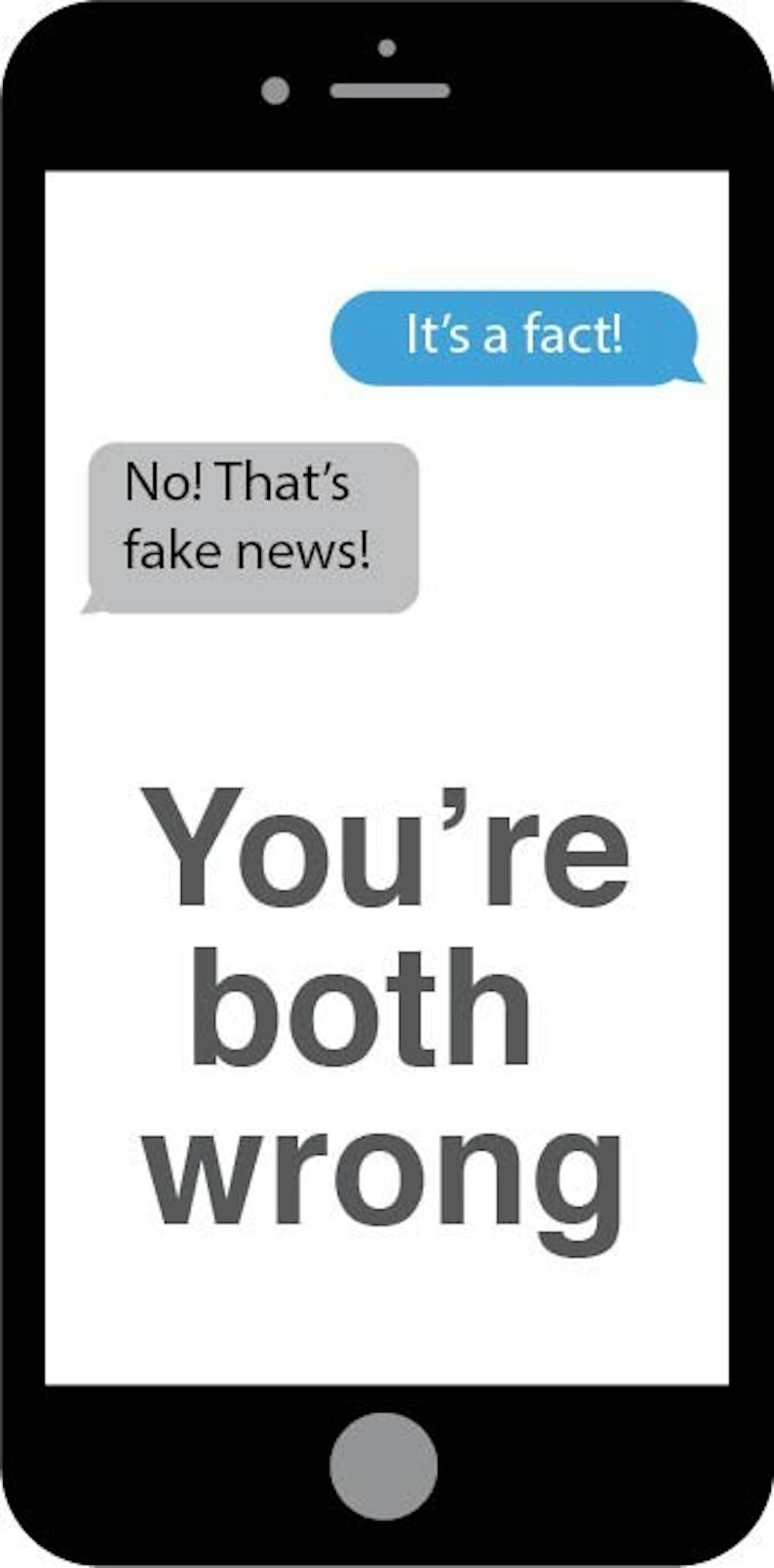EDITORIAL: Fake news is dividing America and creating a world where everything can be questioned, even facts
“Fake news” is more than a term used to dismiss news content someone disagrees with — it’s a serious problem with real world consequences.
It’s distorting reality and dividing America.
We saw the spread of fake news and its effects on the 2016 presidential election. It hasn’t stopped. We are still seeing and experiencing its effects.
Take for example this fake story shared more than half a million times on Facebook titled, “FBI Agent Suspected In Hillary Email Leaks Found Dead In Apparent Murder-Suicide.”
NPR investigated the creation and spread of this article and found the man responsible, Jestin Coler. He said he created the story as a way to infiltrate far-right echo chambers and publicly denounce them.
What surprised him was how fast the story spread on Facebook. He was shocked by the number of people who believed it.
The flow of information through social media, and how easy it is to reach people with a share on Facebook or a retweet on Twitter, has made the spread of fake news easy. Social media has created a venue for the exchange of information that removes the traditional duties of a professional news organization — fact-checking, third-party filtering, the scrutiny of trained editors and editorial judgment.
Social media isn’t the problem though. The problem is how we use it, what we rely on it for and our trust in it. A 2017 Stanford University study, “Social Media and Fake News in the 2016 Election” found 62 percent of adults in the U.S. receive their news from social media.
Social media allows us to catch up with family, connect with long-distance friends and react to world events in real time. It can be a good source for news. But we need to be more cautious about which entities we are getting our information and how we tailor our news source preferences on these platforms.
Because we can easily pick and choose informational sources that do little more than reflect our opinions and preconceptions, fake news keeps us in our bubbles. It creates an echo chamber that doesn’t allow alternative voices or opinions.
We might never know if something we are reading is fake news, because it comes from a source we’ve trusted.
Based on this study, you and two other people could discuss the shooting in Sutherland Springs, Texas, but might not agree if 26 people were killed or that the shooter’s name was really Devin Patrick Kelley.
This is the terrifying reality we live in today. A reality where facts are distorted and twisted to the point we can’t agree on what is real or fake.
This distortion turns people away from world events. If we can’t determine what’s truth — what’s the point of being engaged? For us, a generation that has come of age using social media, this might be one of the most dangerous effects. There is too much happening that affects our futures to be disengaged and misinformed.
The International Federation of Library Associations and Institutions has some advice on how to determine if something is fake news. We urge you to heed this helpful advice:
Diversify your news sources, don’t only follow The Huffington Post, MSNBC and Vox or only Fox News, The Daily Wire and Breitbart.
Seek out other opinions. Read beyond the headlines. If something grabs your attention, read the entire article because sometimes a headline might just be a way to get clicks and likes. As you read an article, always check for sources.
If a claim seems outlandish, research the website because it might be satire or humor. Sometimes articles do have disclaimers at the bottom of the page stating they are not meant to be taken seriously.
If there is no disclaimer, don’t accept it at face value. Research the claims the author is making.
The Society of Professional Journalists also suggests consulting fact-checkers like Snopes.com, FactCheck.org, Hoax-Slayer.net and Politifact.com.
James Monroe, the fifth president of the U.S., essentially said our nation’s ignorance can become an instrument of our ruin. Fake news is the ignorance Monroe warned us about. It’s not going away any time soon.
Don’t let fake news make you ignorant or apathetic.
Research and stay informed.







